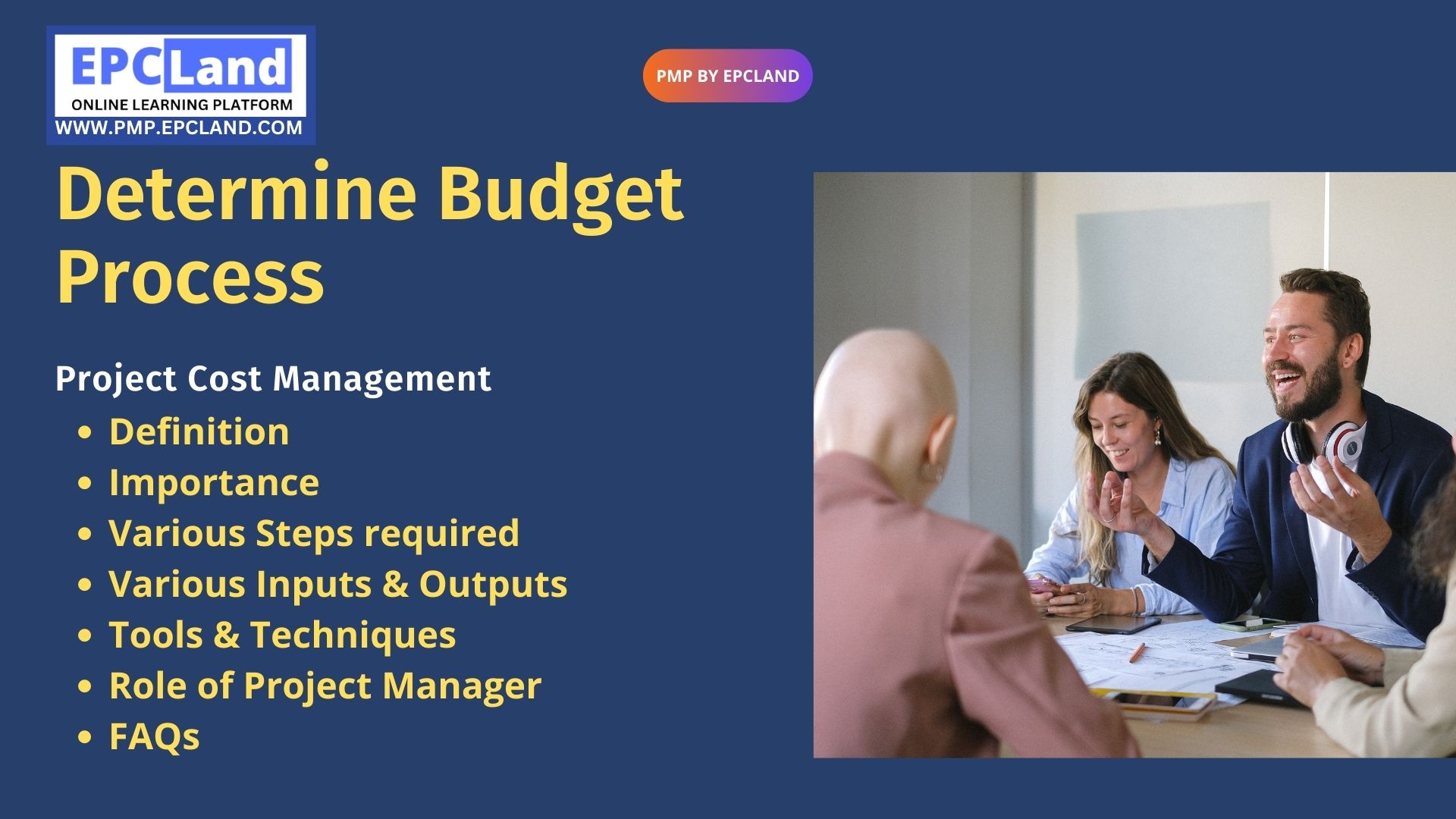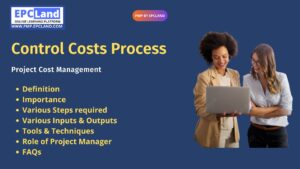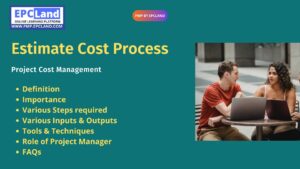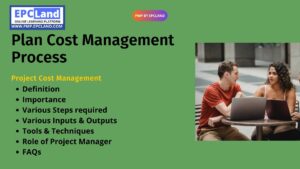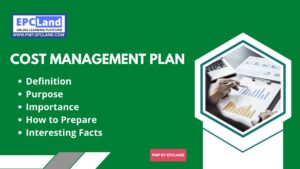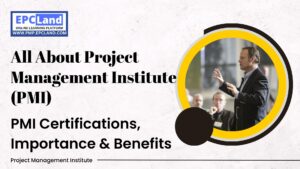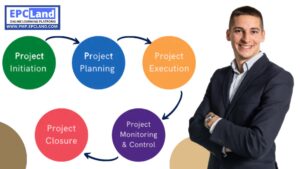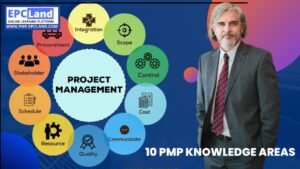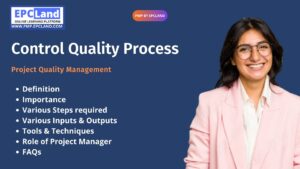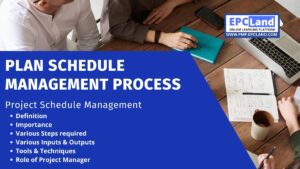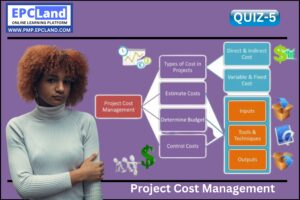The Determine Budget Process is a critical step in Project Cost Management that allows project managers to effectively allocate resources and ensure project success. By breaking down the budget into smaller, manageable components, project managers can better understand the financial requirements of the project and make informed decisions about how to allocate resources. The goal of the Determine Budget Process is to create a realistic, achievable budget that supports the project objectives and ensures that the project is delivered on time and within budget. It involves analyzing the project scope, identifying the resources required to complete the project, and estimating the cost of those resources. With the Determine Budget Process, project managers can effectively manage their project budgets and reduce the risk of cost overruns. By following best practices and utilizing tools and techniques such as cost estimating, budgeting, and cost control, project managers can ensure that their projects are delivered on time, within budget, and to the satisfaction of all stakeholders.
What is the Importance of “Determine Budget Process” in Project Cost Management
The Determine Budget Process is crucial for Project Cost Management for several reasons:
- Resource allocation: The Determine Budget Process helps project managers allocate resources effectively, ensuring that the project is completed on time and within budget.
- Financial planning: By breaking down the budget into smaller components, project managers can better understand the financial requirements of the project and make informed decisions about how to allocate resources.
- Risk management: The Determine Budget Process helps project managers identify and mitigate potential cost overruns, reducing the risk of financial setbacks during the project.
- Improved communication: By creating a realistic, achievable budget, project managers can communicate the financial requirements of the project to stakeholders and secure the necessary funding to support the project.
- Increased efficiency: By following best practices and utilizing tools and techniques for cost estimating, budgeting, and cost control, project managers can streamline their budgeting processes and increase efficiency.
- Project success: By effectively managing the project budget and allocating resources, project managers can ensure that the project is delivered on time and to the satisfaction of all stakeholders, leading to increased project success.
Attempt Quiz-1 on Determine Budget Process
What are the Various Steps required in “Determine Budget Process” in Project Cost Management
The Determine Budget Process in Project Cost Management involves several key steps:
- Define project scope: The first step is to define the project scope and determine the project objectives.
- Resource identification: Identify the resources required to complete the project, including personnel, materials, equipment, and services.
- Cost estimating: Estimate the cost of each resource by utilizing tools such as cost estimation techniques and historical data.
- Budget development: Develop the project budget by combining the estimated costs of each resource.
- Budget refinement: Refine the budget by taking into account any contingencies or risk factors.
- Budget approval: Present the budget to stakeholders for approval and make any necessary revisions based on feedback.
- Cost control: Implement cost control measures to monitor and manage the budget throughout the project.
- Budget re-estimation: Regularly re-estimate the budget as necessary to ensure that it remains accurate and up-to-date.
What are various Tools & Techniques used for “Determine Budget Process” in Project Cost Management
The following are some of the tools and techniques used in the Determine Budget Process in Project Cost Management:
- Cost estimating: Cost estimating techniques such as expert judgment, analogies, parametric modeling, and vendor bid analysis can be used to estimate the cost of each resource.
- Historical data: Utilizing historical data from previous projects can provide valuable insights into cost estimating and budgeting.
- Budgeting software: Budgeting software can be used to automate the budgeting process, simplify budget tracking and analysis, and reduce the risk of human error.
- Earned value management: Earned value management (EVM) is a project control method that can be used to monitor the project’s performance and ensure that the budget is being spent effectively.
- Cost benefit analysis: Cost benefit analysis is a technique used to determine whether a project is financially viable by comparing the expected costs to the expected benefits.
- Risk management: Risk management techniques can be used to identify potential risks and mitigate their impact on the budget.
- Agile methodologies: Agile methodologies, such as Scrum and Kanban, can be used to manage project costs by providing flexible and adaptive approaches to budgeting and cost control.
What are various Inputs required for “Determine Budget Process” in Project Cost Management
The following are some of the inputs required for the Determine Budget Process in Project Cost Management:
- Project charter: The project charter provides a high-level overview of the project objectives, scope, and timeline.
- Project scope statement: The project scope statement defines the project boundaries and outlines the project deliverables.
- Resource requirements: A list of the resources required to complete the project, including personnel, materials, equipment, and services.
- Cost estimates: Cost estimates for each resource, including labor costs, materials costs, and equipment costs.
- Risk register: The risk register outlines the potential risks to the project and includes mitigation strategies.
- Stakeholder requirements: A list of the stakeholders involved in the project, including their expectations and requirements.
- Historical data: Historical data from previous projects, including cost data and performance data, can be used to inform the budgeting process.
- Cost management plan: The cost management plan outlines the strategies and methods for managing the project budget.
What are various Outputs required for “Determine Budget Process” in Project Cost Management
The following are some of the outputs required for the Determine Budget Process in Project Cost Management:
- Project budget: The project budget is the estimated cost of the project, including the costs of personnel, materials, equipment, and services.
- Cost baseline: The cost baseline is the approved project budget that serves as a benchmark for measuring project performance.
- Budget updates: Budget updates are regular reports that track the progress of the budget and identify any variances or issues.
- Cost performance reports: Cost performance reports provide an overview of the project’s financial performance and compare the actual costs to the budget.
- Change requests: Change requests are used to request changes to the budget, such as additional resources or changes to the project scope.
- Financial forecasts: Financial forecasts provide an estimate of future project costs and can be used to identify potential budget overruns.
- Cost management plan: The cost management plan is updated to reflect any changes to the budget or cost estimating techniques.
What is Role of the Project Manager in “Determine Budget Process” in Project Cost Management
The role of the project manager in the Determine Budget Process in Project Cost Management is critical. The project manager is responsible for:
- Leading the cost estimating process: The project manager leads the cost estimating process, working with team members to identify the resources required and to estimate the costs of those resources.
- Developing the project budget: The project manager develops the project budget, using the cost estimates and other inputs to create a detailed estimate of the project costs.
- Approving the budget: The project manager approves the budget, ensuring that it meets the project requirements and is feasible.
- Monitoring the budget: The project manager monitors the budget, tracking actual costs and comparing them to the budget.
- Managing changes to the budget: The project manager manages changes to the budget, ensuring that changes are approved and incorporated into the budget in a timely manner.
- Communicating with stakeholders: The project manager communicates with stakeholders, providing regular updates on the budget and addressing any concerns.
- Ensuring that the budget is being spent effectively: The project manager ensures that the budget is being spent effectively, making adjustments as needed to ensure that the project is delivered on time and within budget.
Attempt Quiz-2 on Determine Budget Process
Final Take Away on “Determine Budget Process” in Project Cost Management
The Determine Budget Process in Project Cost Management is a critical step in ensuring project success. By gathering inputs, using tools and techniques, and producing outputs, project managers can create a detailed and accurate budget for the project. The role of the project manager in this process is vital, as they are responsible for leading the cost-estimating process, developing the budget, and ensuring that it is being spent effectively. A well-executed Determine Budget Process can help to ensure that the project is delivered on time and within budget, improving the chances of project success.
FAQs on “Determine Budget Process” in Project Cost Management
Here are some frequently asked questions about the Determine Budget Process in Project Cost Management:
What is the Determine Budget Process in Project Cost Management?
- It is the process of estimating and aggregating costs for all the work to be performed in a project and producing a cost baseline.
Why is the Determine Budget Process important?
- It helps in ensuring that the project is delivered on time and within budget by providing a detailed and accurate estimate of the project costs.
Who is responsible for leading the Determine Budget Process?
- The project manager is responsible for leading the Determine Budget Process.
What are the inputs required for the Determine Budget Process?
- The inputs required for the Determine Budget Process include scope statement, cost management plan, human resource management plan, risk register, and others.
What are the outputs of the Determine Budget Process?
- The outputs of the Determine Budget Process include project budget, cost baseline, budget updates, cost performance reports, change requests, financial forecasts, and cost management plan.
What tools and techniques are used in the Determine Budget Process?
- The tools and techniques used in the Determine Budget Process include cost estimating, budgeting, and cost control.
What is the role of the project manager in the Determine Budget Process?
- The project manager is responsible for leading the cost estimating process, developing the project budget, approving the budget, monitoring the budget, managing changes to the budget, communicating with stakeholders, and ensuring that the budget is being spent effectively.
